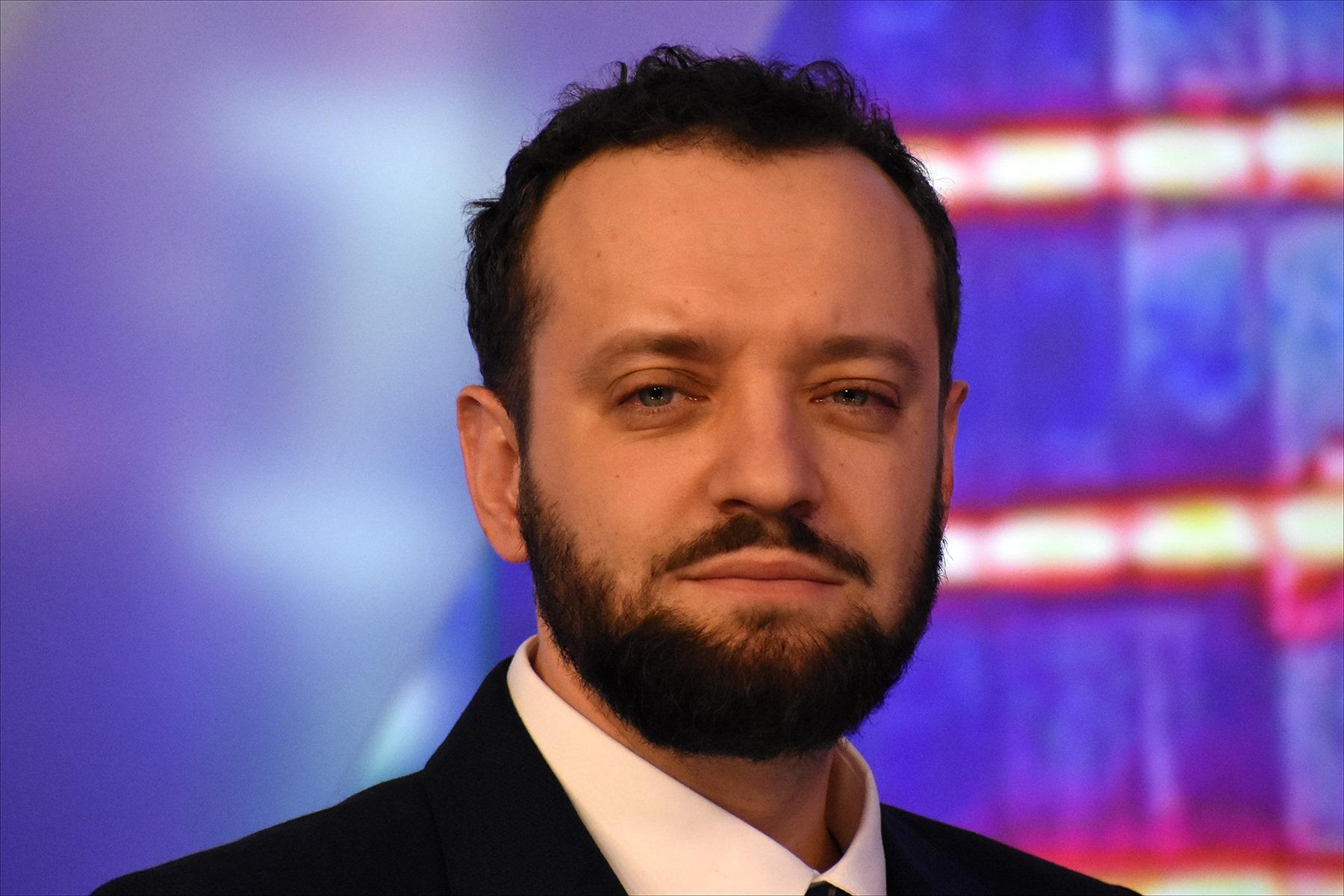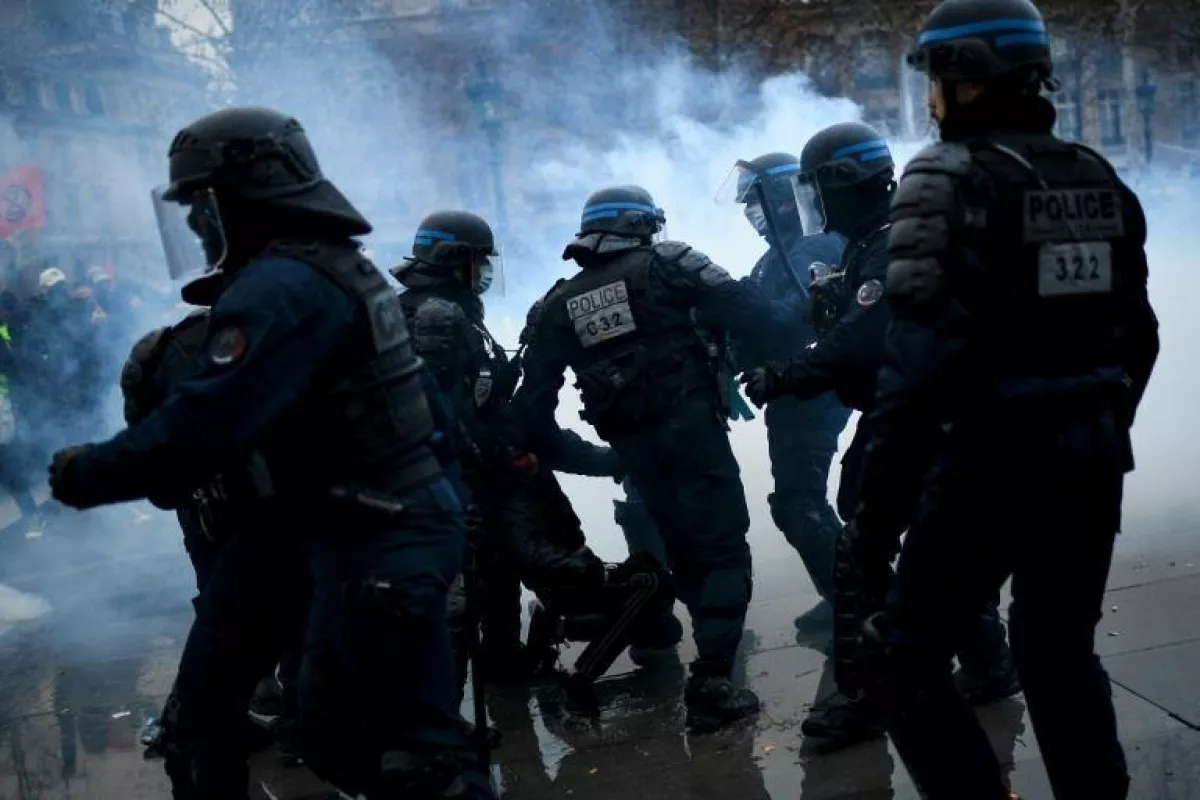Macron's France: Racism, discrimination, and Islamophobia Expert opinions on Caliber.Az
Racist and Islamophobic sentiments in France have reached their peak. On May 31 in the Var region, a 53-year-old Frenchman shot and killed his 35-year-old Tunisian neighbour and wounded a 25-year-old young man from Türkiye in the arm. Later, Prosecutor Pierre Couttenier reported that the perpetrator had posted two racist videos on his social media page—both before and after committing the crime.
The organisation SOS Racisme issued a statement condemning the prevailing atmosphere in France, which, according to them, has legitimised racism and led to hate crimes such as the killing of the Tunisian man, Miraoui.
"These crimes are being committed in a toxic climate: racist rhetoric has become commonplace, the media treats the far right with favour, and institutional signals are cause for concern," the group wrote on social media platform X.
Meanwhile, Mourad Battikh, the lawyer representing the Miraoui family, told France Info that the killing was "a consequence of the atmosphere that has prevailed in the country for several months—if not years—and is growing more violent by the day."
A Caliber.Az correspondent reached out to foreign political analysts for their comments on the surge of Islamophobia and racism in France.

Israeli international affairs expert and rabbi Michael Finkel described the incident in France as a horrific crime.
“The Frenchman wounded a Turkish citizen and shot dead a Tunisian man simply because they were both Muslim. Crimes motivated by ethnicity and religion are symptoms of a much broader and more dangerous trend sweeping through French society. At the same time, France is also gripped by a wave of antisemitic crimes. There have been attacks and beatings of Jews, especially those wearing traditional clothing,” the political analyst noted.
In his view, what we are witnessing is the collapse of the France we once knew, with the roots of today’s crisis traceable to the policies of President Macron and his inner circle.
“When the major war in Syria began, Macron—like several other European leaders—decided it would be noble and virtuous to welcome refugees,” said Finkel. “But no one asked the critical questions: ‘Who exactly will be arriving?’; ‘What are their views, their beliefs, their level of radicalisation?’ As a result, France let in thousands of jihadists, notorious figures, and individuals with combat experience from terrorist organisations, including Al-Qaeda.
Some genuinely believed they would become part of the workforce, providing cheap labour. There was a desire to keep manufacturing within the country and reduce outsourcing, using migrants from impoverished regions to do the dirty, low-paid jobs. But that didn’t happen. Instead, France offered generous welfare benefits and free housing. So the logic became: why work when you can live without doing so?
This created ethnic ghettos—entire districts populated by immigrants from Africa and Arab countries. The situation has deteriorated to the point where even the French police fear entering these areas. They have become hotbeds of drugs, criminal feuds, murders, inter-clan clashes, illegal businesses, and in some cases, even modern forms of slavery. And what’s especially alarming,” Finkel concluded, “is that no one is doing anything about it.”
According to the political analyst, it was a grave mistake to allow such a large influx of people from troubled states—people who have no desire to assimilate or to become French or European in any meaningful way.
“As a consequence, we are now witnessing a dangerous backlash. The white Christian population of France is increasingly developing blanket hatred toward Muslims, indiscriminately and irrationally, which leads to attacks and killings. As a result, ordinary, law-abiding Muslims—who respect French laws and have no ties to radicalism or crime—are suffering.
All of this is a direct consequence of the reckless and disastrous migration policy promoted under the guise of humanitarianism, masked by lofty rhetoric about protecting the oppressed and marginalised. But in reality,” the analyst asserted, “what stood behind it was money—huge sums from the European Union given to countries that agreed to take in refugees.”
In his view, the interests of major financial groups and players—possibly even those beyond the EU—cannot be ruled out. It was business, political ambitions, and a quest for fame.
“The Great French Republic, once a symbol of democracy and civilisation, is before our eyes descending into ethnic and religious conflicts, intercommunal violence. I don’t know if this situation can be saved. But one thing is certain: this is not a crisis of multiculturalism, but a crisis of common sense, statecraft, and responsibility,” Finkel concluded.

Meanwhile, Kazakh political analyst and candidate of political sciences, Sharip Ishmukhamedov, believes that the problem of Islamophobia in today’s France has deep demographic, social, and political roots.
“According to various estimates, there are currently around 8.5 million Muslims in France, which makes up roughly 6 to 9 per cent of the country’s population. The trend shows that this number will only continue to grow—for two reasons.
First, natural population growth: Muslim families tend to have higher birth rates, with three to five children being common and stable.
Second, migration—both legal and illegal—from countries that were formerly under French control, that is, from former colonies. This is a very important point. We are not talking about just any Islamic countries, but specifically former French colonies such as Algeria and Tunisia, whose citizens benefit from simplified visa procedures, travel arrangements, and employment opportunities. For example, it is more difficult for someone from Kazakhstan to get into France than for someone from Algeria,” he explained.
According to Ishmukhamedov, within the next 10 to 20 years, the Muslim population in France could reach 10% and continue to grow, while the number of the country’s traditional Catholic population declines—a trend supported by statistical and demographic studies.
It is against this backdrop, the political analyst believes, that Islamophobia is intensifying: “This entire campaign of fear towards Islam, Muslims, and a foreign culture—fear of people openly expressing their faith—is, in my view, the basis for both overt and covert rejection of Islamic culture and religion. French culture, it seems, is struggling to cope with the challenge posed by Islamic discourse.”
At the same time, he emphasises that Islamophobia is not always expressed through laws or official policies: “Today, anti-Islamic sentiments are manifested in statements by politicians—President Macron, the interior minister, mayors, and especially representatives of opposition parties such as Marine Le Pen’s National Rally. During election campaigns, an unspoken competition begins: who can utter the harshest, most offensive words against Muslims and migrants, who can find the loudest cliché. And all of this is done for electoral points.”
The political analyst notes that such rhetoric has a direct impact on public opinion: “The people of France, living under the pressure of economic and social problems, are increasingly influenced by these statements and begin to look for scapegoats among the most vulnerable—primarily Muslims.”

He highlighted the discrimination faced by Muslims across many areas.
“All statistical data show that Muslims are the most vulnerable group in terms of protection. Their employment rates are the lowest, and access to education is limited. Muslim women suffer particularly, being the most frequent complainants of rights violations at work. Today, migrants are blamed for all societal problems: rising unemployment, crime, and drug trafficking. And it is most often Muslims who bear the brunt. This is a very dangerous and risky policy. I was genuinely surprised that the French Interior Minister Bruno Retailleau appeared almost daily in the news in May 2025, attacking Algerians and migrants. His statements are direct accusations blaming Muslims for all the country’s problems. Such rhetoric at such a high level is very alarming. Naturally, it is easier to blame minorities for the nation’s woes than to undertake real reforms. No one wants to talk about the need for economic transformation, fighting corruption, declining exports, or poor governance. Instead, they look for scapegoats among the most vulnerable,” the expert stated.
In his view, this strategy might bring short-term political gains, but strategically it is extremely dangerous.
“France risks losing its centuries-old image as a symbol of democracy, human rights, civil liberties, and justice. For us, people from countries with transitional economies, for the entire post-Soviet space, the French Republic has been a country where success is achieved through hard work, not origin. Unfortunately, today this image is rapidly deteriorating,” Ishmukhamedov concluded.








